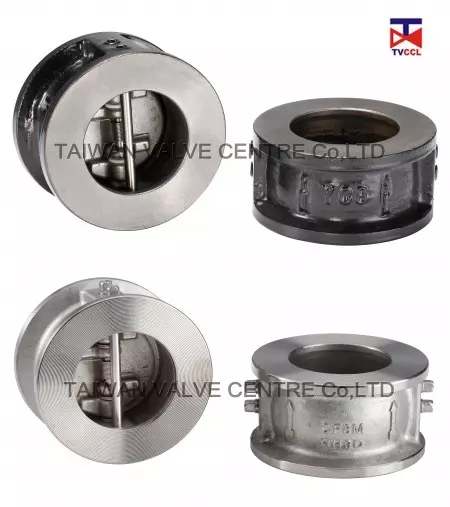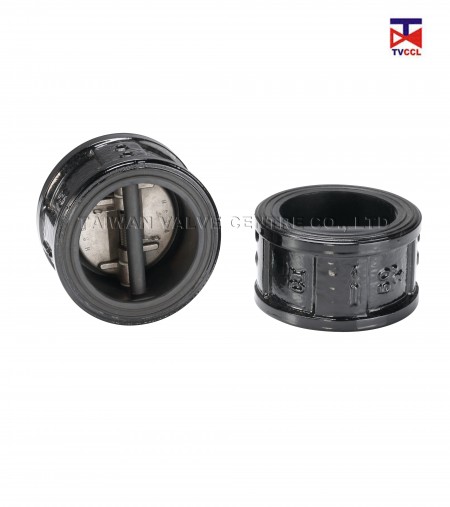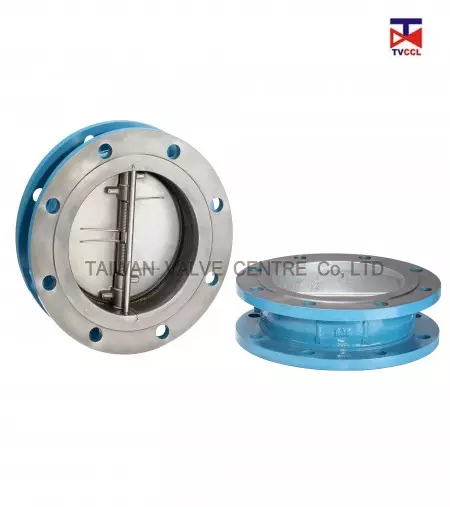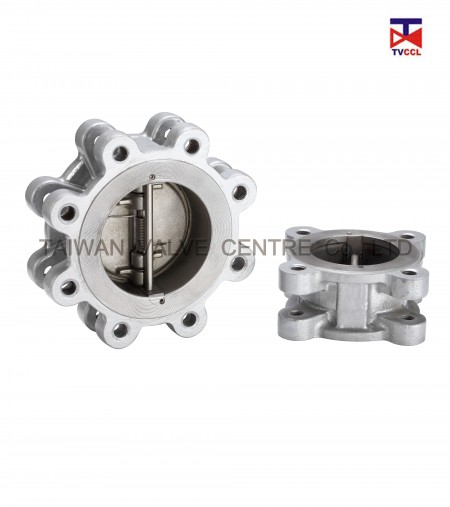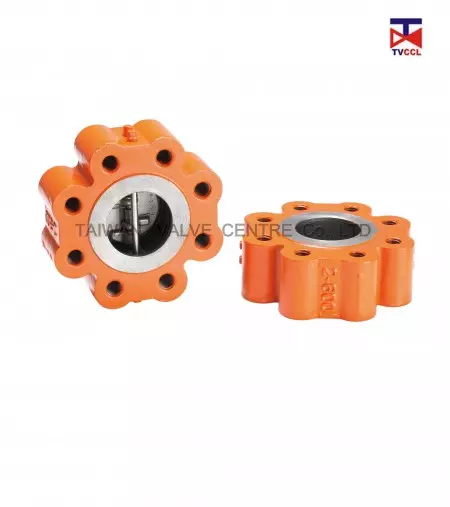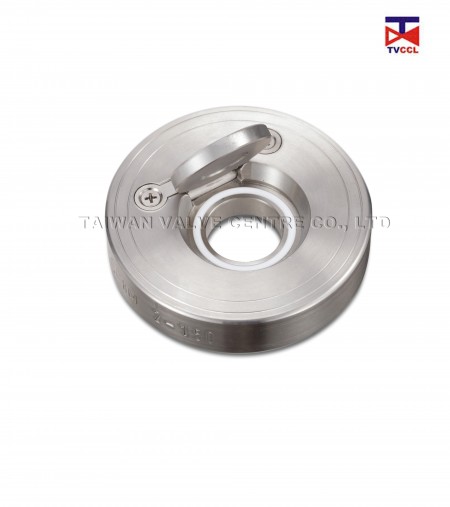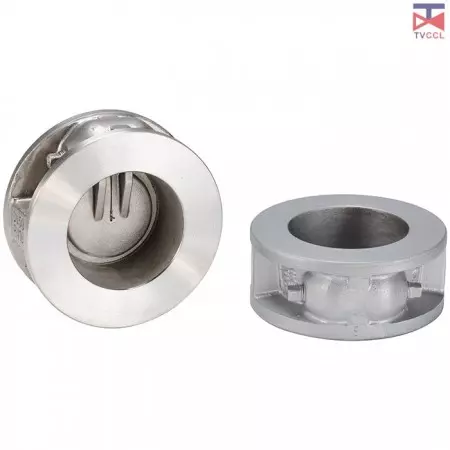Dual check valve installation distance
What happens if the installation distance of the dual plate check valve is too short?
If the installation distance for a double plate check valve is too short, several problems can arise which can affect the performance, longevity and safety of the valve and the piping system. Here are the possible consequences:
● Turbulent flow: A short installation distance, especially after flow obstructions such as bends, elbows or other valves, can cause turbulent flow. Turbulence can prevent the double plates check valves from working properly and can lead to premature wear.
● Water hammer: Water hammer is a sudden increase in pressure that occurs when a moving fluid is forced to stop or change direction suddenly. If the duo check valve is too close to a pump or other valve, it may close rapidly when the flow stops, causing water hammer. This can cause damage to the duo check valve, pipework and other system components.
● Cavitation: Cavitation is the formation and collapse of vapor bubbles in a liquid. It can occur when there's a significant drop in pressure, such as when fluid accelerates around the plates of a dual check valve. Cavitation can cause damage to the valve plates and other components.
● Impaired Sealing: For the double plates check valves to seal properly, they need a stable flow profile. If the valve is too close to flow disturbances, the plates may not seal properly, leading to potential leaks.
● Increased wear: Turbulent flow or rapid changes in flow velocity can cause increased wear and tear on the dual check valve plates. This can reduce the life of the dual plate wafer type check valve.
● Reduced valve efficiency: The dual door wafer type check valve may not operate at its optimum efficiency if it's too close to other components. This can lead to increased energy consumption in the system.
● Potential for damage: In the event of sudden pressure changes or surges, a valve that's too close to other components may not have enough space to absorb the movement or vibration, leading to potential damage.
● Safety concerns: Water hammer, cavitation and other problems caused by short installation distances can lead to safety hazards such as pipe bursts, leaks or even system failure.
In summary, ensuring the correct installation clearance for a double plate check valve is critical to its optimum performance, safety and longevity. It's always recommended to follow the manufacturer's guidelines and industry best practice when installing these valves.
If you're faced with a situation where the installation distance for a dual plate check valve is too short, there are several solutions and mitigation measures you can consider:
● Use a non-slam check valve: Consider using a non-slam check valve, which is designed to close more gradually, reducing the risk of water hammer. These valves can be more forgiving in confined spaces.
● Install a water hammer arrestor: A water hammer arrestor is a device that can absorb the shock wave caused by sudden valve closures, thereby reducing the effects of water hammer. It can be installed near the dual plate wafer type check valve or other potential sources of water hammer.
● Add flexible connectors: Installing flexible connectors or compensators can help absorb vibration and reduce stress on the valve and piping system.
● Adjust Pump Operation: If the check valve is near a pump, consider adjusting the pump operation to reduce the risk of sudden stops that can cause water hammer. Variable frequency drives (VFDs) can help modulate pump speeds and reduce sudden changes in flow.
● Install a bypass line: A small bypass line with a control valve can be installed around the double door wafer type check valve. This allows controlled flow during start-up or shut-down, reducing the risk of sudden pressure changes.
● Reposition the valve: If possible, consider repositioning the dual plate wafer type check valve to a location with more available space. This may require some reconfiguration of the piping system.
● Use pulsation dampeners: In systems with pulsating flows, the use of pulsation dampeners can help smooth out flow fluctuations and reduce the stress on the double disc wafer type check valve.
● Regular Maintenance and Inspection: f the installation distance is short and cannot be altered, ensure regular inspection and maintenance to detect and address any wear and tear or potential problems early on.
● Pressure Relief Valves: Install pressure relief valves in the system to prevent over-pressurisation, which can be a hazard in tight installations.
● Consult with Experts: If you're unsure about the best solution for your specific situation, consult a valve manufacturer, engineer or industry expert. They can provide advice tailored to the needs of your system.
● Consider Valve Replacement: If the current valve is not suitable for the space available, consider replacing it with a different type of check valve that may be more forgiving in tight installations.
In summary, although a short installation distance for a double plate wafer type check valve is not ideal, there are several solutions and mitigation measures that can help to overcome the associated risks and challenges. It's important to assess the specific needs and constraints of your system and choose the most appropriate solution.
- Related Products
Dual Plate Wafer Type Check Valve
TC0
Fast Delivery: Most orders are shipped within 3-7 days, depending on stock availability. Versatile Applications: Suitable for a wide range of industries...
DetailsDual Plate Wafer Type Check Valve with Full Rubber
TC1
Dual plate wafer type check valve with full rubber is usually used in seawater desalination system. Usually we chose iron body and aluminum bronze disc...
DetailsDual Plate Flange Type Check Valve
TC4
Because the check valve flange type doesn’t tapping on the flange hole, installation of double door flange type check valve is simpler than double door...
DetailsDual Plate Lug Type Check Valve
TC6
The dual plate lug type check valve only takes 15-20 minute completely dissemble and reassemble or less. In general, the flange holes of dual plate lug type...
DetailsDual Plate Full Lug Type Check Valve
TC9
Double disc lug type check valves are designed to ASME, JIS, ISO, AWWA...etc. specifications and conform to API 594. Double disc lug type check valves...
DetailsSingle Door Wafer Type Check Valve with Short Type
TS-1
TVCCL's single door check valve offers numerous advantages customized for modern industrial requirements. Its compact design facilitates effortless integration...
DetailsSingle Door Wafer Type Check Valve With Long Type
TS-2
Single-plate wafer check valves are also called swing type that performs the same with swing check valve with much less cost. The Long type Single plate...
Details

